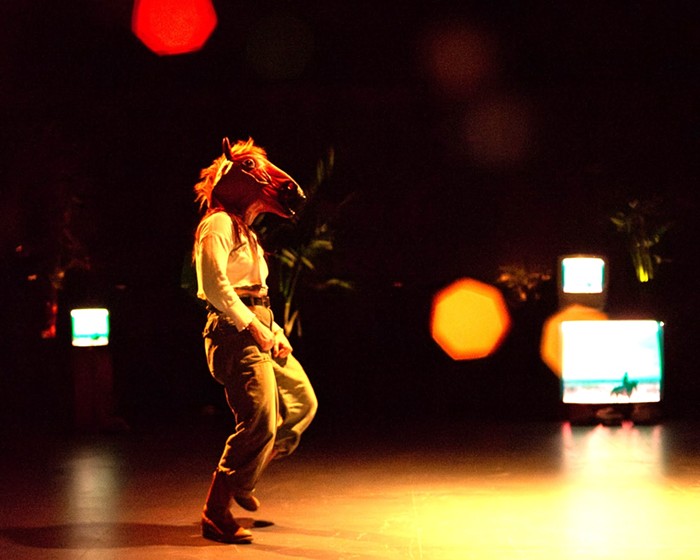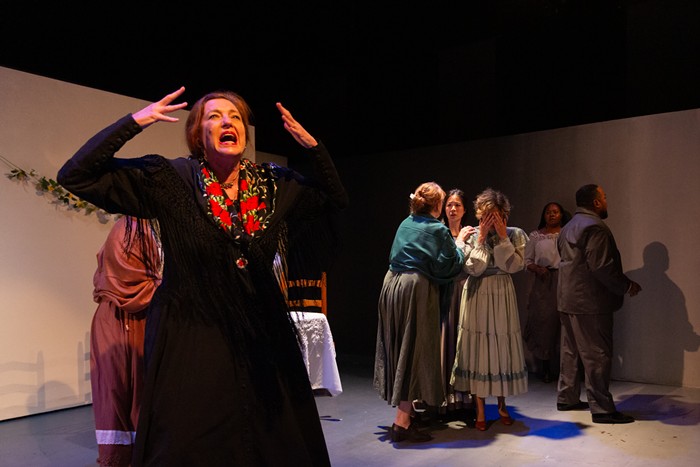PORTLAND OPERA'S PRODUCTION of Puccini's final opera, Turandot, sure is pretty to look at. Bathed in nocturnal shades of purple, the scenery slopes dramatically to stage left, bringing an effective seasickness to the story of a brutal Peking princess who executes all of her suitors. Their framed mugshots—representing their severed heads—cover the wall of the opera's first act. Part of the scenery peels away in Act Two to reveal a violently Nyquil-green semicircle, from which the chorus sits above the action, as if observing an operating theater. Some of the costumes, too, are eye-catchingly surreal, from the matching flowing robes of the story's pair of kings, indicating them as two sides of the same coin, to the bright, primary-colored zoot suits of the court's functionaries, Ping, Pang, and Pong.
It's visual candy with the threat of poison beneath it, hinting at the story's intrinsic violence under its serene, courtly setting. It's a little disappointing that the action, then, plods in comparison. Scenes are statically staged, with characters anchoring down their positions and scarcely budging from them; when they do move, it's to drift across the stage aimlessly, as if in slow motion.
The exiled Prince Calaf (Philip Webb, looking more than a little like Hurley from Lost) falls for the Chinese princess Turandot (Lori Phillips), who's an icy-cold bitch, if you really want to get down to it. She poses him three riddles, which he must answer or be executed. Meanwhile a slave girl, Liù (Grazia Doronzio), loves Calaf, but in Turandot, as in life, things don't turn out very well for slaves. Ping, Pang, and Pong (Timothy Mix, Steven Brennfleck, and Brendan Tuohy) are the comic center in a story that's otherwise pretty grim.
Puccini never actually finished Turandot—he died in 1924 before composing its final scenes, which were finished by Franco Alfano. As a result, the momentum is noticeably sucked out of the opera at the end of Act Three, a problem that's no particular fault of this production. Puccini's music is eerie and captivating, bearing almost no Chinese musical elements but possessing an otherworldly quality. It's this music that lifts Turandot above its flawed ending as well as this energy-sapped staging—its horror is suggested in the scenery, while the rest is left to the imagination.



















